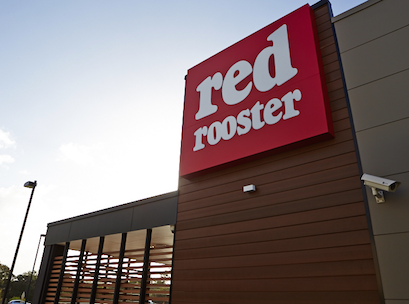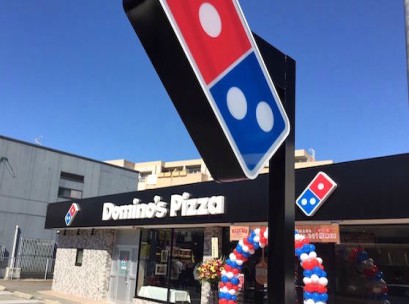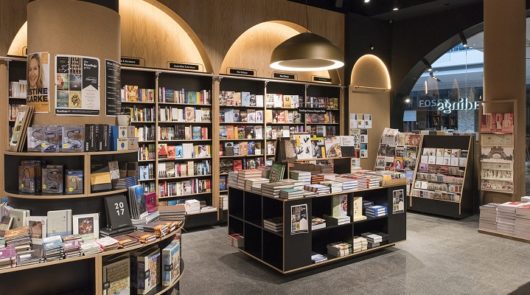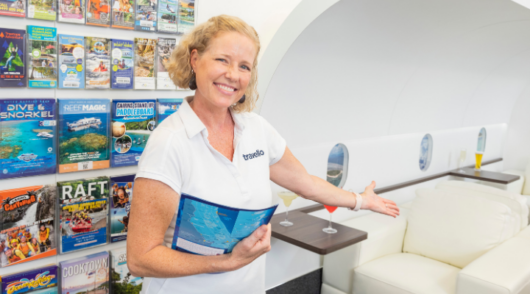 Institutional investors showed little appetite for a slice of Craveable Brands, the fast food restaurants company that owns the Red Rooster, Oporto and Chicken Treat brands.
Institutional investors showed little appetite for a slice of Craveable Brands, the fast food restaurants company that owns the Red Rooster, Oporto and Chicken Treat brands.
Archer Capital has abandoned plans for a mid-July float of the Perth-based company, which was previously named Quick Service Restaurants Holding (QSRH).
Despite relatively healthy prospectus forecasts, the response to presentations to institutional investors in a Melbourne and Sydney roadshow were lukewarm.
Craveable Brands decided not to proceed with its initial public offering because of poor equity market conditions “including the broader sentiment weighing down the overall retail sector”.
Craveable Brands’ offer price was aimed at between $2.09 and $3.07 a share, which would have translated to a market capitalisation of $368 million to $400 million.
Archer Capital acquired QSRH in June 2011 from another private equity firm, Quadrant Private Equity.
The company had around 620 stores across Australia, with around 25 per cent of the stores under corporate ownership and the remainder franchised when a 90 per cent controlling stake was acquired by Archer Capital.
The remaining 10 per cent of shares in QSRH were held by management.
Archer Capital was keen to expand the store network, which included 375 Red Rooster outlets, 135 Oporto stores and more than 100 Chicken Treat sites, as well as some international locations.
Archer Capital planned to expand overseas in New Zealand, China, the US and the UK, but the global push has not reached expectations and both the store numbers for both the Red Rooster and Chicken Treat chains have fallen in the past six years.
The current store network of 569 outlets are expected to generate annual sales of around $742 million and net earnings of $26.2m for the 2017 financial year.
In abandoning or, at least, postponing the public float, Craveable Brands said it now plans to keep growing the business by expanding home deliveries and adding opening more stores, including international outlets.
The company currently generates around 65 per cent of its sales from Red Rooster and home delivery sales account for 10 per cent of those revenues, with an average spend on delivered orders running at twice that of in-store purchases.
Optimistically, Craveable Brands believes it can lift the proportion of home delivery sales up towards the 50 per cent achieved by Domino’s Pizza, although investors wondered why home delivery hadn’t been rolled out across the network ahead of the float if it was such a promising initiative.
Craveable Brands is not the only planned listing on the Australian Stock Exchange (ASX) to be abandoned this year, the most notable abandoned float being Wesfarmers’ plan to hive off its Officeworks chain.
Investors are generally treading warily in uncertain market conditions, but are especially cautious about private equity offerings and retail stocks, particularly those involving franchise networks.
Institutional investors were sceptical of the maths in the Craveable Brands prospectus, with revenue flat over the past five years and the company carrying $106.3 million in tax losses that would be expected to eliminate any tax liability for the 2017 financial year and FY2018.
The losses were incurred in the 2014 and 2015 financial years and related to restructuring of the business. It posted a profit before interest, tax and depreciation of $46 million in FY2016.
There was also scepticism about a forecast dividend yield to investors of between 8.6 per cent and 9.3 per cent, which would make the ASX debutante one of the top 10 yielding stocks in the ASX300, but would incur a tax liability for investors on the unfranked dividend.
In any event, institutional investors believed the $2.09 and $3.07 issue price on shares proposed by Archer Capital and its float advisor, Goldman Sachs, was too high and not justified by sales trends or profitability.
Archer Capital had attempted to shore up confidence in the Craveable Brands float by retaining about one third of the scrip escrowed until after the 2018 financial year results.
The Craveable Brands prospectus forecast sales of $786.3 million and net earnings of $30.2m for FY2018.
However, institutional investors remember the commitment of Anchorage Capital Partners to retain a stake in Dick Smith Holdings when it was floated was of little value as the electronics retailer nosedived as soon as the private equity firm exited the share register.
 Domino’s: A slice of humble pie
Domino’s: A slice of humble pie
Archer Capital’s pitch to investors for Craveable Brands was also dented by bad news associated with Domino’s Pizza and Retail Food Group, two listed fast food franchise companies that have delivered for hungry shareholders over a number of years.
A report by Citibank claims Domino’s Pizza is over-valued by more than $800 million and will miss its growth forecasts because of the need to reinvest in its franchise business model to improve the profitability of its franchisees and ensure all staff are employed on award pay rates and conditions.
Citibank’s report noted that Domino’s Pizza Enterprises head office profits had grown at 9.5 per cent annually for the past 12 years, following expansion into overseas markets and new store openings in Australia and New Zealand.
In the corresponding period, franchisees were unable to outpace inflation with a meagre 1.2 per cent annual average earnings increase, a key factor in the underpayment of staff in some franchise stores.
Domino’s Pizza Enterprises is currently auditing more than 700 franchise outlets and the Fair Work Ombudsman is investigating 26 franchisees for under-payment of employees.
Citibank contends there is little incentive for investment in new stores by franchisees, unless Domino’s Pizza Enterprises re-jigs its profit share just as the 7-Eleven stores were forced to do after widespread underpayment of employees was revealed in media and government agency investigations.
Citibank estimates Domino’s Pizza Enterprises annual profits will fall from the 9.5 per cent mark to around 4.4 per cent over the next nine years and profit margins would miss the company’s long term 45 per cent target by 6 per cent at best.
To be an attractive investment for franchisees, Citibank believes stores need to generate a post tax return on capital of between 15 and 20 per cent compared to a current rate of around 12 per cent.
Citibank expects sales growth for stores in Australia and NZ to moderate and is not optimistic that Domino’s Pizza Enterprises can meet its targets for new stores in Europe or Japan.
While the company’s share price has plunged by around one third over the past year to $53.60 at the end of last week, Citibank has recommended investors should sell their scrip against their analyst view that a fair value would be $45.50 per share.
Deutsche Bank has also advised its clients to sell the stock and JP Morgan has a hold recommendation.
RFG: Staying strong
Retail Food Group has been a consistent performer on the Stock Exchange with a portfolio of franchise brands, including Donut King, Brumby’s Bakery, Gloria Jeans, bb’s café, Michel’s Patisserie, Pizza Capers, Esquire Coffee and Crust Gourmet Pizza.
However, the company’s share price has fallen from $7.37 to $4.67 in the past 12 months, 10 per cent of the drop in the price following a $3.3 million cut to its profit forecast for FY2017 and a $22 million non-cash writedown against its Michel’s Patisserie and Pizza Capers chains.
In an update to investors, Retail Food Group said its international operations have continued to enjoy organic growth in FY17, albeit impacted by a delay in finalising a new master franchise agreement.
Retail Food Group said it remained positive about its international growth, given the number of licensing matters presently being negotiated and the increase in licensed territories from 46 to 80 in less than three years, including an agreement for Gloria Jean’s Coffees in the United Kingdom.
The company said the Hudson Pacific Corporation acquired in the first half of the financial year was trading to expectations and the domestic franchise chains were currently trading in line with FY2016.
The company reported growth across most brand systems, offsetting a decline for Michel’s Patisserie, which has been impacted by third party supply chain issues experienced in transitioning the network operating model to in-store customisation.
The $22 million writedown on the value of Michel’s Patisserie and Pizza Capers related to expenditure on marketing the two brands which have both suffered a decline in store numbers.
A slow start for Oliver’s
While the public float for Craveable Brands was abandoned by Archer Capital, another fast food chain has hit the ASX listings, albeit after facing similar headwinds and accepting a lower price point for its scrip.
Oliver’s Real Foods was forced to extend its offer to investors by a week and scale back its listing price from 30 cents a share to 20 cents in order to gain investor backing for its float.
Ironically, Oliver’s Real Foods found buyers at 27 cents a share in trading and ended its first week as a public company with its scrip at 33 cents.
The company claims to be the first fully organic fast food chain and operates 20 stores in highway locations in New South Wales and Victoria.
Oliver’s Real Foods plans to invest the $15 million raised in the float to open 40 more stores over the next four years and to expand into the Queensland and South Australian markets.
Started by Jason Gunn, who has retained a 21 per cent stake in the company, Oliver’s Real Foods claims to have two million customers each year and is forecasting sales of $42 million and net earnings of $2.4 million for the 2018 financial year.
By eating a little humble pie in terms of the pricing of its shares to backers of the float, Gunn has succeeded with a listing of his company despite the headwinds for retailers contemplating life as a public company.
For Archer Capital, however, the Craveable Brands offer was under-cooked and over-priced as far as investors were concerned.





